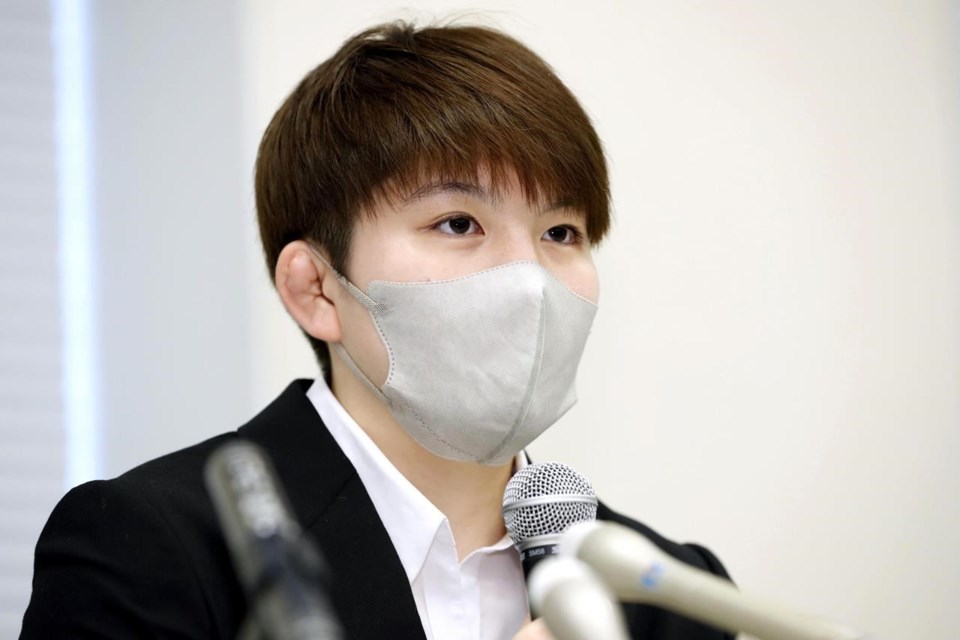TOKYO (AP) — A former Japanese soldier who suffered sexual harassment while serving in the army said Monday she has accepted apologies from four servicemen in a groundbreaking case that prompted a Defense Ministry-wide investigation into growing reports of assaults in the military.
Rina Gonoi told reporters that the four assailants, who were her superiors in the army, met with her separately and apologized for the pain that caused her to give up her military career. She said some admitted that they had sexually harassed other female soldiers as well.
The four men told her they planned to resign from the army to take responsibility, she said. They gave her handwritten letters of apology which she read in a televised news conference. The assailants did not attend and she did not disclose their names or ranks, saying that their families also were victims and she didn’t want them to suffer.
When the men met with her, "I was a bit scared, but I kept up my spirit and stood face-to-face with them, because accepting an apology in person was one of my goals after seeing the truth being denied,” she said.
Gonoi filed a sexual harassment case with the Defense Ministry last year, saying she had suffered multiple assaults by male colleagues. In one incident, several senior male colleagues pressed the lower part of their bodies against her in a dorm at a training ground in August 2021, forcing her to spread her legs, as more than 10 other male colleagues watched and laughed, but none tried to stop them, she said.
She said the investigation into her case was improperly conducted and local prosecutors dropped it in May. A month later, she quit the army and disclosed her allegations on social media.
Gonoi submitted a petition signed by more than 100,000 people to the Defense Ministry in August seeking a reinvestigation of her allegations by a third party.
She also said that she had received information about dozens of other servicemembers who had been harassed while on duty, as well as from parents who were worried about the safety of their daughters in the military.
In a rare admission of sexual harassment in the military, army chief Yoshihide Yoshida .
Defense Minister Yasukazu Hamada also ordered a ministry-wide investigation into sexual assault following her allegations.
The ministry said complaints of various types of harassment have increased nearly 10-fold over the past five years.
It sent investigators to the regional army division overseeing the unit where Gonoi served. They found more victims in other cases, and are expected to issue their final report within weeks.
In a country where gender inequality remains high, sexual harassment is often disregarded and the #MeToo movement has been slow to catch on. But Japanese women have slowly begun to speak up, though many still suffer silently.
Gonoi said she went public because she wanted to help others who cannot raise their voices, and is happy to help the Defense Ministry create an environment in which there is less harassment and victims don't need to quit their careers.
Despite the men’s apologies, “the scars I have suffered will stay with me the rest of my life,” she said. “Now I want to regain my own life, not as a victim, but as someone who can make other people smile and who can do something for others.”
Mari Yamaguchi, The Associated Press




